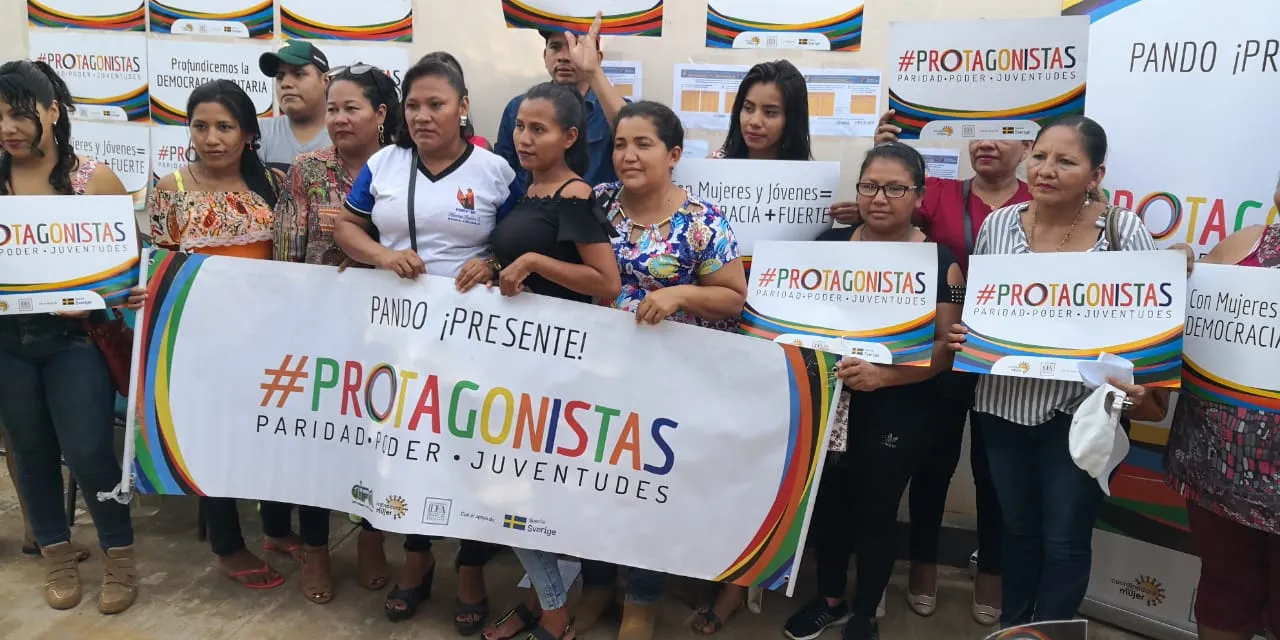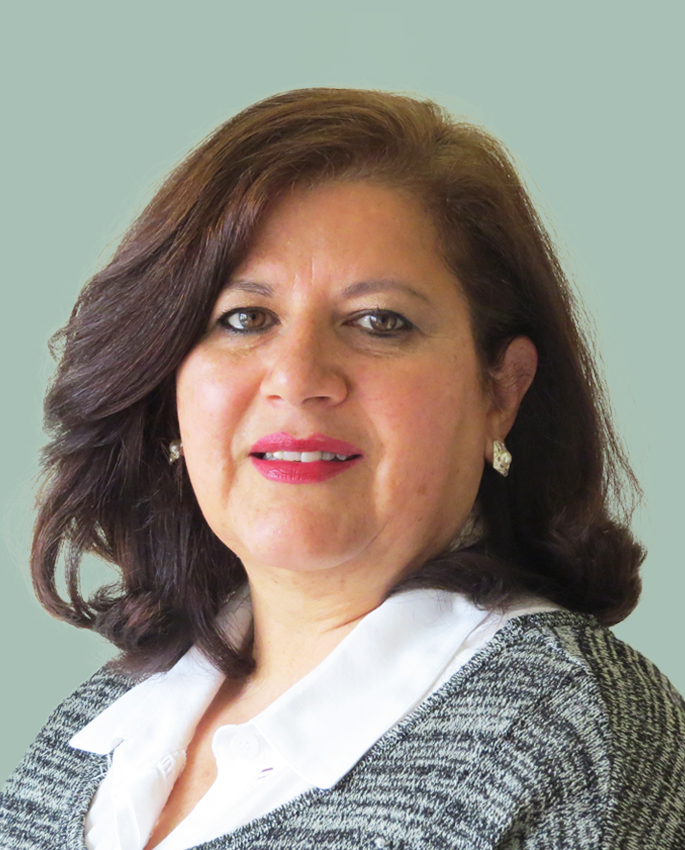International IDEA releases an early alert in support of parity compliance during Bolivia's national elections

The follow-up work undertaken in Bolivia by the campaign #PROTAGONISTAS, advanced by International IDEA in partnership with the "Coordinadora de la Mujer " with support of the Swedish Embassy, made it possible to detect that only one out of eight political organizations taking part in the country’s 2020 general elections complied with full parity in the candidate lists.
Este artículo está disponible en español.
Women’s organizations mobilized throughout the whole country on 3 February 2020 demanding that political organizations comply with women parity participation requirements, on the date candidate lists had to be submitted before the Supreme Electoral Tribunal (TSE) and the Regional Electoral Tribunals (TEDs).
On the basis of current norms for the 2020 general elections to be held in Bolivia this coming 3rd of May, #PROTAGONISTAS identified a total of 59 indicators in order to monitor compliance of nominee parity and alternation.
Following an analysis undertaken during the campaign, it was possible to detect that only one out of eight political parties or alliances that registered their candidates with the TSE, complied with all the criteria established by law to ensure parity and gender alternation. The other parties and alliances presented varying levels of non-compliance.
International IDEA’s Senior Adviser, Alfonso Ferrufino, expressed his concern to the TSE, and called for this non-compliance to be made good as soon as possible. As such, he insisted on parity and alternation in the make up of candidate lists, pointing out that: “This issue has not been adequately addressed by political organizations and the political system in general. This is a task that must be guaranteed by the TSE, as the work in safeguarding women’s rights is indispensable.”
The 59 parity and alternation compliance indicators are derived from a combination of three variables and two geographical units, according to the type of nomination within the Bolivian electoral system and current parity and alternation norms. The three variables are: a) horizontal parity compliance (or alternation) among office holders and alternates; b) vertical parity compliance among office holders; and c) horizontal geographical parity compliance among office holders at the top of the list. These variables are applied over two geographical units, at: a) an autonomous regional level and, b) a national level. As Bolivia is made up of nine autonomous regions, each of which represents a geographical unit for the application of these indicators.
The combination of these three variables and these two units, in compliance with current electoral norms (particularly the Registration Regulations and Nominee Register), produced a total of 59 analysis and monitoring indicators. The following table summarizes the way in which these are combined for each type of office:
CRITERIA |
VARIABLE |
GEOGRAPHICAL UNIT |
RESULTANT INDICATORS(Variable x Geographical unit) |
Senate seats |
a) horizontal parity (office holders and alternates) |
a) regional |
9 |
b) vertical parity (office holders) |
a) regional |
9 |
|
c) geographical horizontal parity (top of the list office holders) |
b) national |
1 |
|
Plurinominal Representatives |
a) horizontal parity (office holders and alternates) |
a) regional |
9 |
b) vertical parity (office holders) |
a) regional |
9 |
|
Uninominal Representatives (Single-member district) |
a) horizontal parity (office holders and alternates) |
a) regional |
9 |
b) vertical parity (office holders)* |
a) regional |
9 |
|
Indigenous Representatives |
a) horizontal parity (office holders and alternates) |
b) national |
1 |
b) vertical parity (office holders) |
b) national |
1 |
|
Supranational Representatives |
a) horizontal parity (office holders and alternates) |
b) national |
1 |
b) vertical parity (office holders) |
b) national |
1 |
|
TOTAL |
59 |
||
Following an analysis of the candidate lists that had been presented, International IDEA and the Coordinadora de la Mujer convened a press conference, during which they called for the TSE, as well as all political organizations, to find a solution to this non-compliance as soon as possible. Moreover, they stressed that: “The participation of women in political matters on an equal footing is a constitutional right that must be safeguarded by the authorities, and respected within the framework of these, and all other, elections.”
Following the release of this early alert, Bolivia’s TSE issued an announcement calling on political organizations to fulfill and make good candidate lists adhering to parity and gender alternation criteria laid out in the norms, in accordance with the electoral timetable.




